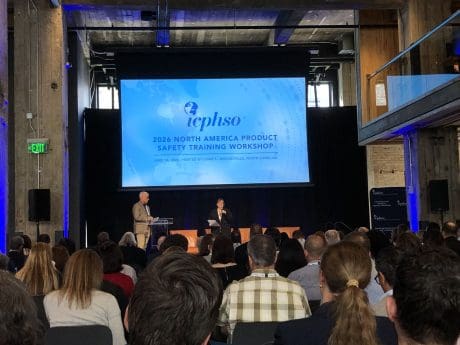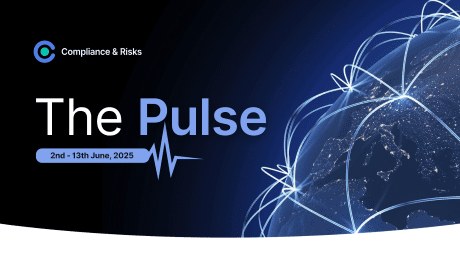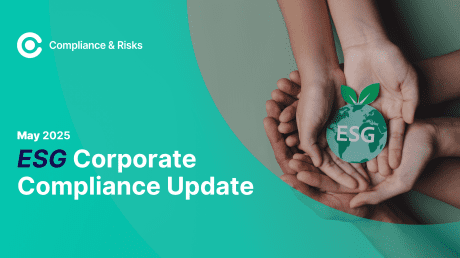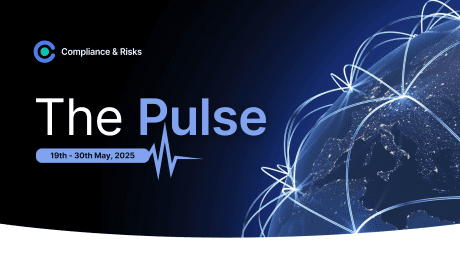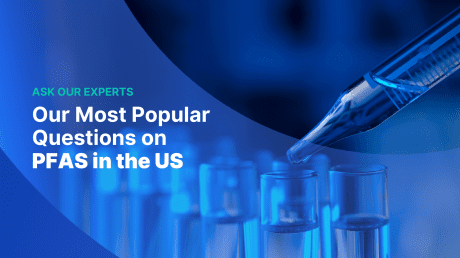
Medical Devices 101: Your Questions, Our Expertly Crafted Answers

Medical devices face a unique regulatory landscape that has been increasingly complicated by several factors in recent years.
The demand for more sustainable technology is being driven by both consumer demand and legislators, leading to regulatory implications. Global events such as Brexit and COVID-19 have also created unprecedented challenges.
As devices become increasingly integrated with artificial intelligence and an internet connection, new cybersecurity and data protection legislation is racing to keep up.
And on top of all this, the new regulatory framework for IVDR and proposed amendments for the registration, and inspection of medical devices under MDR means staying ahead is more critical than ever.
In our new series, we gather some of the most interesting recent inquiries from Compliance & Risks customers regarding the medical device regulatory updates globally:
Question 1: Can you please share with me the latest Chinese Regulation for Companion Diagnostics?
Denise McDermott, Senior Regulatory Compliance Specialist answers:
In April 2021, the NMPA published an Announcement of the State Food and Drug Administration on Publishing 5 Registration Technical Review Guiding Principles for Tumor Companion Diagnostic Reagents Instructions Update and Technical Review Based on Similar Therapeutic Drugs (2021 No. 24). https://www.nmpa.gov.cn/ylqx/ylqxggtg/20210415160145122.html
In December 2021, an announcement of the State Food and Drug Administration on the release of two registration review guidelines for clinical trials of non-origin companion diagnostic reagents for anti-tumor drugs, (2021 No. 95) was published https://www.nmpa.gov.cn/directory/web/nmpa/xxgk/ggtg/qtggtg/20211201092255101.html
In June 2022, an Announcement of the Center for Device Evaluation of the State Food and Drug Administration on Issuing the Guiding Principles for the Registration Review of Clinical Trials of Original Companion Diagnostic Reagents Developed Simultaneously with Antineoplastic Drugs (2022 No. 28) was published https://www.cmde.org.cn/xwdt/zxyw/20220628135504141.html
The National Medical Products Administration (NMPA) has also previously published several technical review guidelines for certain types of companion diagnostic products;
Technical review guideline for genetic mutation detection reagents related to personalized cancer treatment, 2014, https://www.nmpa.gov.cn/ylqx/ylqxggtg/ylqxqtgg/20140313120001460.html
Human epidermal growth factor receptor (EGFR) mutant gene detection reagents technical review guideline (PCR method), 2018
https://www.nmpa.gov.cn/ylqx/ylqxggtg/ylqxzhdyz/20180224172801274.html
Registration technical review general guideline for performance evaluation of the reagents used for tumor-related genetic mutation test (high-throughput sequencing), 2019 https://www.nmpa.gov.cn/ylqx/ylqxggtg/ylqxzhdyz/20191205093801407.html
Question 2: Are hearing aid batteries considered medical devices in Canada?
Hee Ji Lee, Regulatory and Requirements Compliance Specialist answers:
This Health Canada website describes medical batteries as follows:
“Which batteries are considered medical devices?
Batteries are considered medical devices when they are designed, manufactured, and labeled specifically for use with medical devices (e.g. a battery made exclusively for a defibrillator (AED).
When determining if a battery is a medical device, consider how it is used and marketed. Your battery is considered a medical device if the labeling represents it for use with medical devices only. For example, a battery labeled as a “hearing aid battery” is being marketed specifically for use with a medical device and is therefore considered a medical device.
Multipurpose batteries that are manufactured and labeled for general use—which may or may not include powering medical devices—are not considered medical devices. A battery that is used to power both your TV remote control and your electric toothbrush is not considered a medical device, since it has both medical and non-medical uses.”
Question 3: We would like to know if there is any information about how to trial a Class I product in South Africa.
Denise McDermott, Senior Regulatory Compliance Specialist answers:
The SAHPRA website (https://www.sahpra.org.za/medical-devices/) states; “A manufacturer, distributor, wholesaler of a non-sterile, non-measuring Class A medical device is exempt from licensing, as per the SAHPRA position statement 9.106 “Class A medical devices.”
The SAHPRA position Statement 9.106 can be found here. It states; “Manufacturers, distributors, and wholesalers of Class A medical devices, which are considered to have a measuring function or which are required to be sterile, must apply for a medical device establishment license.
Manufacturers, distributors, and wholesalers of any other Class A medical device need not apply for a medical device establishment license until further notice in this regard is issued, but nothing prohibits them from applying for such a license”. The following document is also useful ‘Frequently Asked Questions: Licensing Medical Device Establishments‘.
In terms of Regulation 22(4) of the Medicines and Related Substances Control Act No. 101 of 1965, all applications and supporting data submitted should be presented in English. Original documents not in English should be accompanied by an English translation.
The guideline on General Information Medical Devices and IVDs is also a very useful document.
Additional guidelines can be found here.
Stay Compliant With Global Medical Device Regulations:
Catch up on our latest medical device updates with your coffee here:
- IVD Regulations In The EU
- IVDR Regulatory Compliance: What are your IVDR and product blindspots?
- IVDR Compliance: What You Need To Know
- Regulatory Developments in Medical Devices: A Review of Recent Legislation
Register for our on-demand webinar for a regulatory update on the medical devices industry here.
Your Questions Answered
Many of the above questions were submitted and answers were conveyed to Compliance & Risks customers via the “Ask Our Experts” button in C2P.
Clients use AOE to ask about the latest proposed, enacted and amended regulations and mandatory standards applicable to their products and geographies of interest.
When AOE questions can be answered in 30 minutes or less, Compliance & Risks’ subject matter experts answer them at no charge!
To learn more about C2P and how Compliance & Risks’ SMEs can help you with your questions, contact us today.
Meet our Experts

Denise McDermott, Senior Compliance Specialist, Compliance & Risks
Prior to joining Compliance & Risks, Denise worked in the medical device industry for 13 years across a number of areas including regulatory affairs, post-market surveillance, customer complaints, quality, and technical support.
She has experience in several areas including IVDR, CE marking, labeling, legal documentation, customer and quality technical communications and regulatory risk assessments.

Hee-Ji Lee, Regulatory and Requirements Compliance Specialist, Compliance & Risks
Hee-Ji Lee is a Regulatory and Requirements Compliance Specialist with the Global Regulatory Compliance Team.
Her work is focused on conducting extensive legal research for clients as well as monitoring and analyzing global regulatory developments.
She has a Bachelor of Political Science in Politics and Diplomacy, a Master of Science in International Management and Global Business, and is currently pursuing a Bachelor of Science in Law.
Hee-Ji is a native Korean speaker, and is fluent in English and Chinese.
She also has experience handling/submitting environmental data on semiconductor products at a company in Hong Kong.
